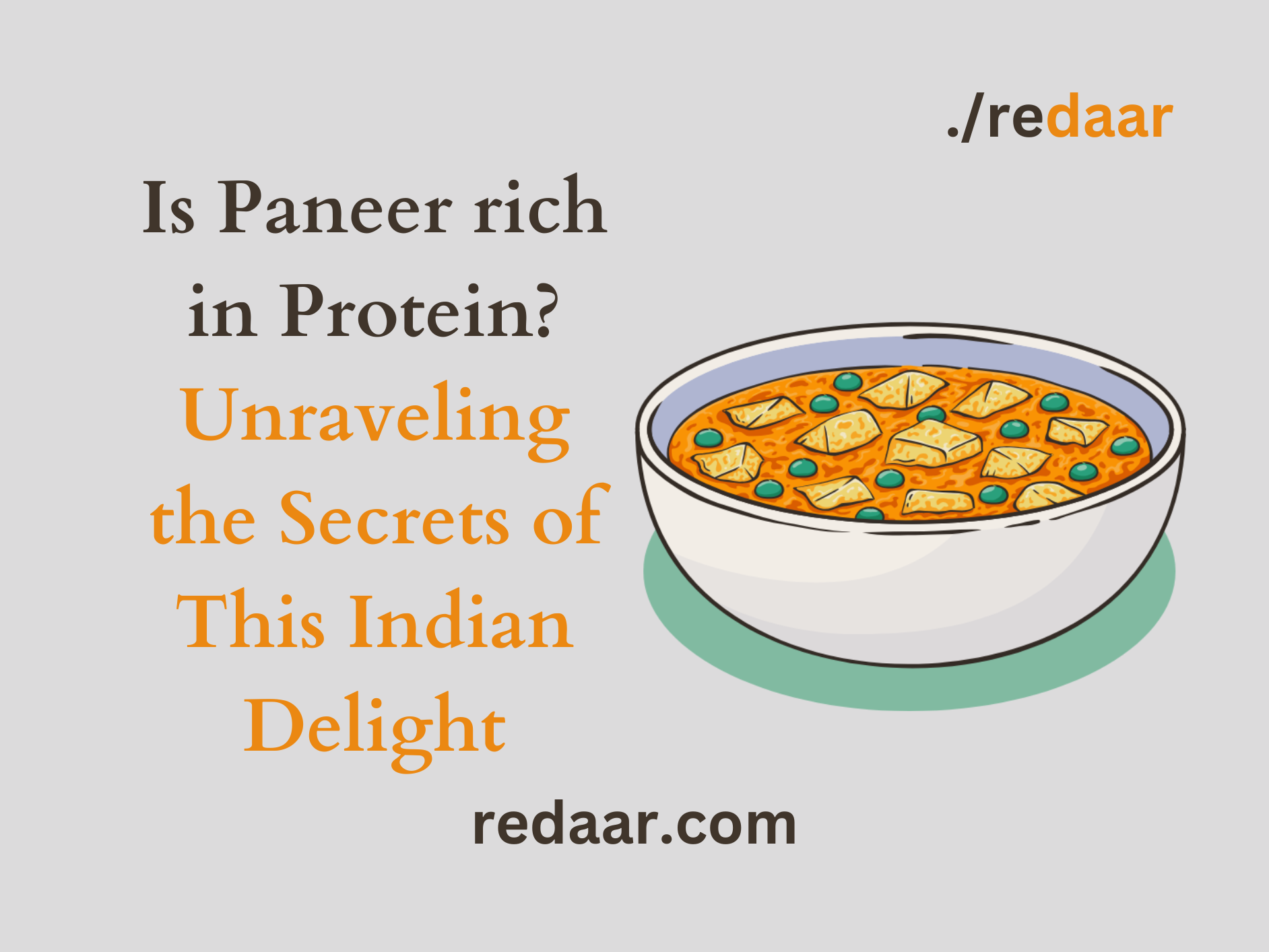Is Paneer Truly a Protein Powerhouse? Let’s unravel the secrets to this Indian delight
Since ancient times, paneer, a popular dairy product from the Indian subcontinent, has been a mainstay in many households. Whether you prefer paneer in hot, spicy curries, grilled as tikka, or just in its raw, crumbly state, its adaptability has made it a widely used ingredient. Although its delectable flavor and creamy texture are well-known, its nutritional profile frequently causes controversy, especially when it comes to the amount of protein it contains. Is paneer really high in protein, or is this merely a widespread myth? Let’s examine it more closely and discover the secrets of this delicious Indian treat.
The Indian Wonder Dish: Paneer
Indian cottage cheese, or paneer, is a fresh cheese created by curdling milk with acidic ingredients like vinegar or lemon juice. It then receives a peculiar crumbly texture after being drained, squeezed, and cut into cubes. Given its mild flavor and ability to work in both savory and sweet dishes, paneer is an essential ingredient in many traditional Indian dishes.
Protein Power of Paneer
Protein is among the first things that spring to mind when talking about paneer’s nutritional worth. Protein is a crucial macronutrient needed for many body processes, including the development of muscles, tissue repair, and enzyme manufacturing. It is crucial for those who live an active lifestyle and vegetarians who acquire their protein from plant-based sources.
Undoubtedly, paneer is a fantastic source of protein, but how does it compare to other sources? The comparison contains the solution. 100 grams of paneer has around 14 grams of protein, while one whole egg has around 7 grams of protein. Paneer, however, ranks somewhere in the center when compared to other protein powerhouses like chicken breast, which normally has 31 grams of protein per 100 grams, and tofu, which has about 8 grams of protein per 100 grams.
Paneer’s Protein Quality
Protein quantity is crucial, but so is protein quality. A mixture of essential and non-essential amino acids, some of which the body can create on its own, makeup proteins. Essential amino acids must be obtained from diet.
Dairy products like paneer are categorized as having animal-based proteins because they contain all the essential amino acids. It is nutritionally valuable since it includes all the essential amino acids that the body needs. This is a benefit that many sources of plant-based protein do not have since they frequently lack one or more important amino acids.
Paneer Protein Digestive Properties
The digestion and absorption of paneer are additional factors to take into account when assessing its protein content. Proteins from animal sources, like paneer, may be easier for certain people to digest and absorb than proteins from plant sources. Paneer might be a good substitute for those who are lactose intolerant because the process of manufacturing cheese dramatically lowers the lactose level.
Paneer: More Than Just Protein
The nutritional profile of paneer includes a substantial amount of protein, but that is not its sole advantage. Calcium, a necessary mineral for keeping healthy bones and teeth, is abundant in paneer. Additionally, it contains phosphorus, which supports the health of bones in conjunction with calcium.
Paneer also supplies important vitamins like vitamin D, vitamin A, and vitamin B12. Vitamin D is essential for calcium absorption, while vitamins A and B12 are essential for many biological functions, including the creation of red blood cells and the immune system.
Omega-3 and omega-6 fatty acids, which are good for heart health and cognitive function, are among the healthful fats found in paneer. Paneer is relatively high in calories and saturated fat, so it is important to consume it in moderation.
Paneer’s Inclusion to your diet
How can we properly incorporate paneer into our meals now that we are aware of its nutritional profile? The key to eating anything is moderation. In particular, paneer can be a great way for vegetarians to up their protein consumption in a balanced diet.
To make balanced and nutrient-dense meals, think about combining paneer with a range of veggies, whole grains, and legumes. The alternatives are unlimited, whether it’s in a traditional palak paneer, a delicious paneer tikka masala, or just grilled with a sprinkle of spices.
Unquestionably, paneer is a significant source of protein, especially for vegetarians. It has a full amino acid profile, which is beneficial for digestion, and it has a number of nutritional benefits.
While it is a beneficial complement to a balanced diet, it is important to keep in mind that diversity is the key. You can get a wide range of crucial nutrients by eating paneer along with other protein sources and nutrient-rich foods.
Therefore, the next time you enjoy a delightful paneer meal, savor its protein prowess and welcome it as a component of a balanced and satisfying diet. Follow us to read great articles regularly.

